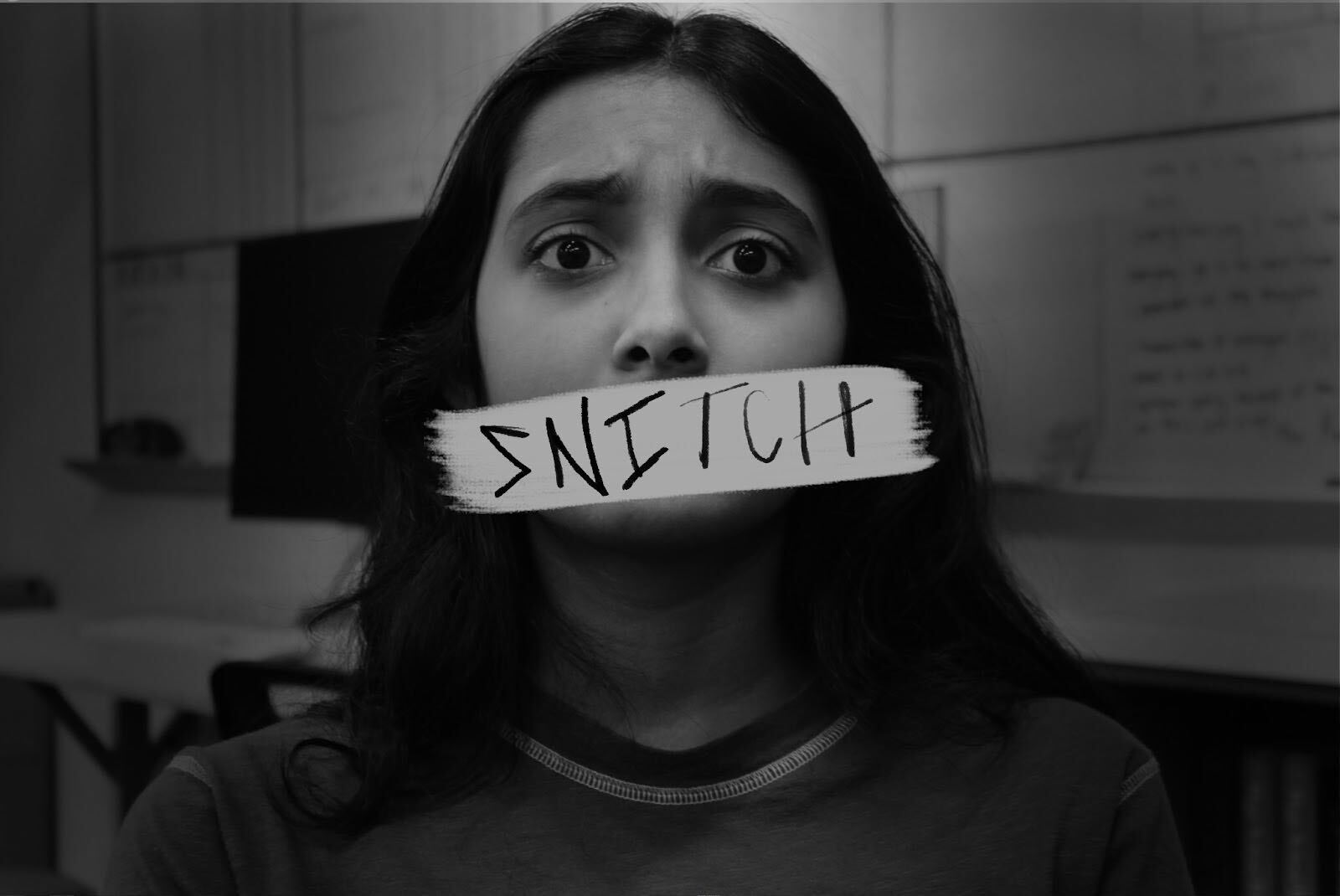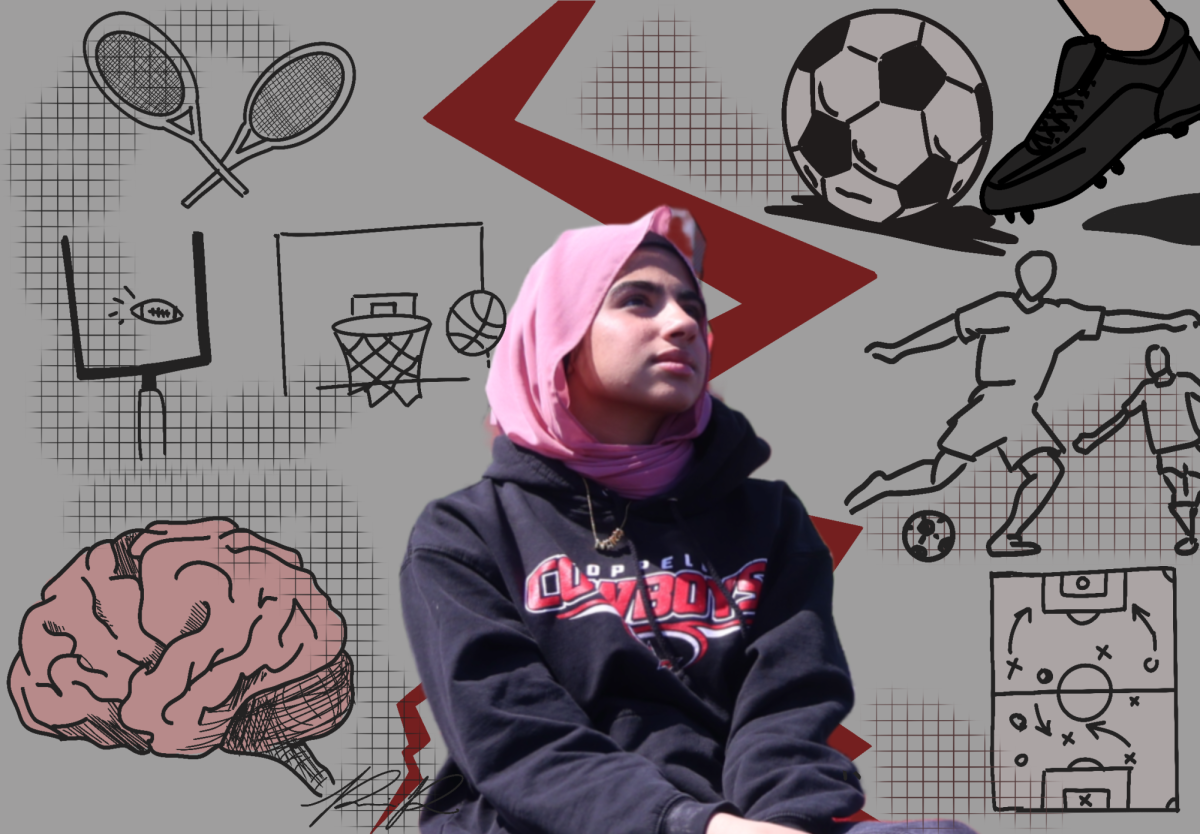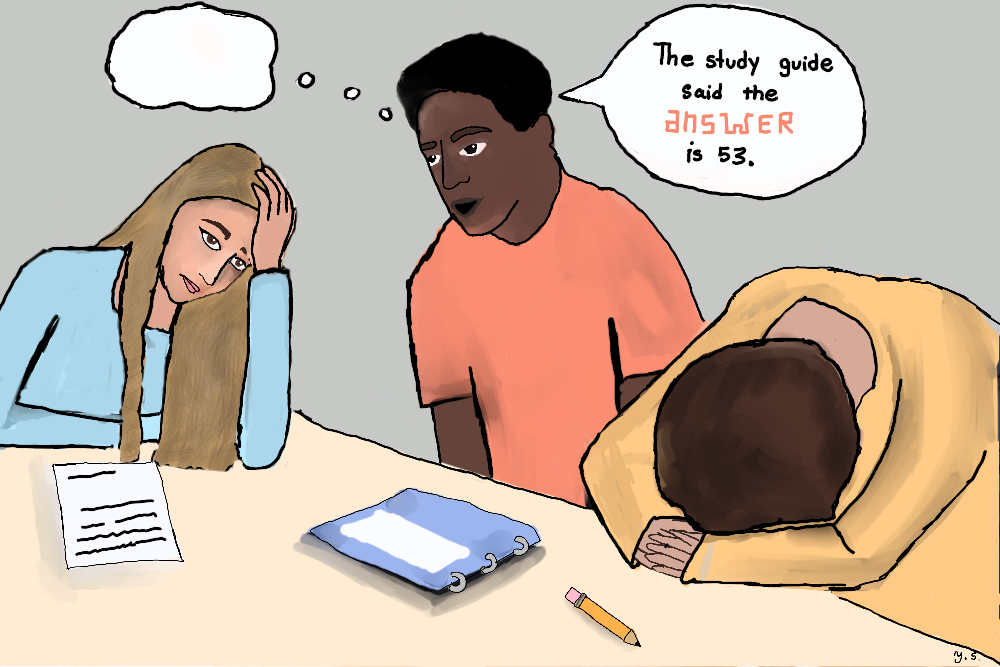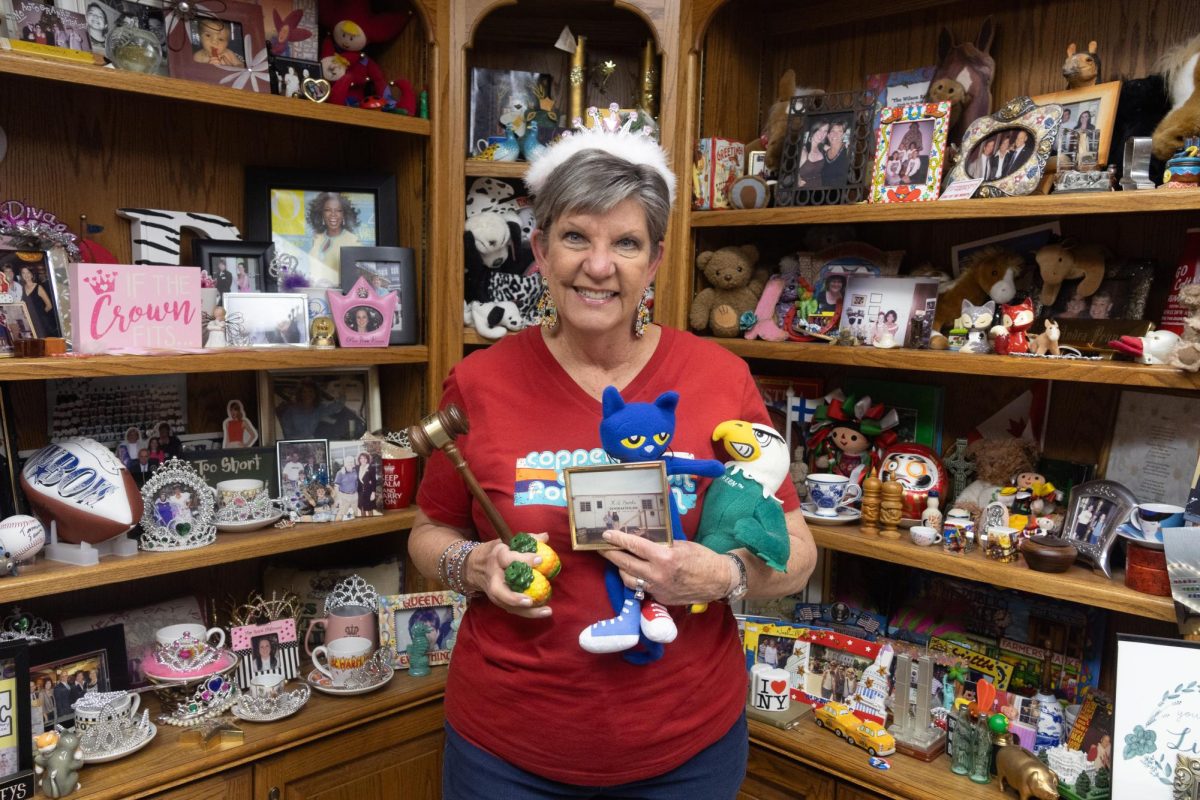Answer choice: C
I bubbled in my answer, my eyes bordered with bags that appeared after my long study session the previous night. As I look up to check the time, I notice two of my classmates whispering to each other and sharing answers.
Suddenly, my previous efforts seem useless.
I recount this experience to my family who advised me to tell my teacher or administration about the academic dishonesty. But that was never a viable option. As I have been reminded countless times, speaking out means being labeled a snitch.
Snitches get stitches.
The adage is ingrained in my mind. Those who find cheating a serious offense are seen as a goody-two-shoes and are criticized for caring too much for something that was “never that serious.”
If I let someone know that my classroom was riddled with cheaters, I might gain some sense of justice and vindication. But justice comes with my classmates knowing I reported them, and suddenly no vindication seems needed enough to justify facing the animosity of my peers.
The situations that play out in front of me can be awful, but I won’t report them. I don’t want to lose my social status.
This phenomenon is not restricted to cheating. Even in cases of poor behavior and bullying of others, I hesitated to speak out. I chose to suffer in a classroom where my classmates were cursed at rather than become a social pariah after telling higher authorities. Tons of other students at CHS are also plagued by the bystander effect, presence of others preventing witnesses from seeking justice.
In an environment such as this, it is no surprise that academic dishonesty thrives. Cheaters are treated with leniency and have constantly received the benefit of the doubt, while students that have integrity are never provided with a second chance and are ostracized when they do speak out.
My pains are soothed by my support system who swear that cheaters will eventually face justice for their actions, but how will that happen if we do not take it upon ourselves to point it out?
Our social justice system is flipped. Why are we protecting wrongdoers and penalizing victims for a violation that isn’t theirs?
Unfortunately, the snitch culture does not contain itself to high school. As students enter the adult world, they carry the belief that speaking up is a sign of “caring too much” and never an option, even if the offense is a crime or serious hurt. We are creating a generation of bystanders, too scared to call people out for their wrongdoings.
We need to break this cycle and change the rhetoric around speaking up. Those who choose to report wrongdoings are not villains and should be supported for their brave actions. Cheaters should be perceived for what they are: cons who get to high places in life by stepping on their peers.
Many people justify cheating and poor behavior, stating that we never know what struggles the people around us are going through that may lead them to be academically dishonest. To an extent, this is true. It can be good to be more understanding of our classmates’ situations.
However, one person’s struggles do not invalidate the struggles others face due to their actions. The intentions behind cheating do not lessen the effect of it on one’s peers.
At the end of the day, we all contribute to the snitch culture. As hard and daunting as it may seem, we need to report cheating and support others who do so too. All it takes is a few of us becoming more understanding of victims of cheating to put an end to snitch culture.
Follow @CHSCampusNews on X.
















Ashia A Agarwal • Mar 1, 2024 at 7:35 pm
Amazing work! The message is so strong and applicable!
Anvita Bondada • Mar 1, 2024 at 2:26 pm
This was so incredibly written Nrithya! Amazing work as always
Nyah Rama • Feb 27, 2024 at 10:16 am
Amazing work as usual! Great job Nrithya!
Nrithya • Feb 28, 2024 at 7:20 pm
Thank you so much Nyah!
Kavya Lokhande • Feb 27, 2024 at 9:53 am
How well written! Great story Nrithya Mahesh
Nrithya • Feb 28, 2024 at 7:24 pm
Thanks Kavya Lokhande!
Sahasra Chakilam • Feb 26, 2024 at 7:21 pm
Great story Nrithya!!
Nrithya • Feb 28, 2024 at 7:21 pm
Thank you Sahasra!